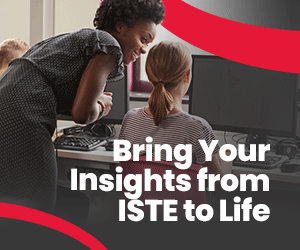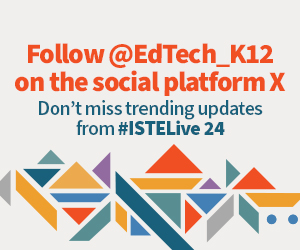“We don’t decide to lean in or out of electricity,” Bovell said, adding that society will be so radically transformed by AI that instead of preparing students for specific jobs, educators will need to train them to solve problems. That will require rethinking the foundational skills that students need in the future.
“Kids need to learn how to read better, more deeply and at younger ages,” Bovell said. “They need to think more critically about ideas and what they're reading. And when we think about the sophistication of some of these AI systems that are coming in the future, imagination and play will become a competitive advantage.”
EXPLORE: Why generative AI is a tech enabler.
Educators Have a Responsibility to Understand AI
What will this mean for educators? Speaking from the main stage, Richard Culatta, CEO of ISTE+ASCD, posed this question to the audience.
“As educators, we have the responsibility to become really deeply informed of what AI is, and how it works,” he answered, adding that one of the most common concerns about AI is that students will use the tool to cheat.
“Cheating is a cultural problem, not a technological one,” Culatta said. “We have research from Stanford that's been tracking this for many years, showing that 70 percent of high school students regularly cheat.”
Notably, when those researchers looked at cheating after the introduction of AI, the rate of cheating remained the same.
“Giving or banning access to a tool doesn't actually make much of a difference” Culatta explained. “If we want to do something about cheating, we can make sure assessments are relevant. We need to ask, what are the possibilities and limitations of AI? How can we use it to adapt learning? This means that as educators, we have to understand how AI really works.”














